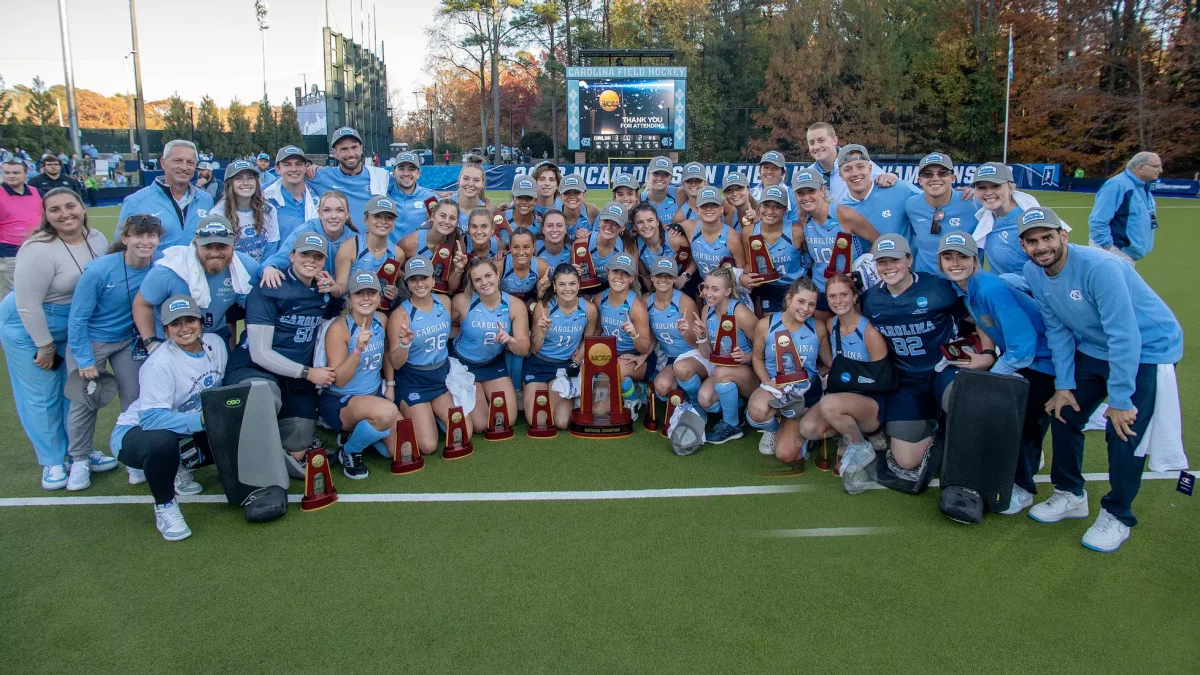VR may help athletes recover from ACL injuries
In sport scientist Shelby Baez’s study, they use virtual reality headsets to guide meditation and reduce fear.
Press the play button above to watch the video
U.S. high school athletes experienced more than 5.2 million injuries between 2015 and 2019.
For Madison Davis, a high school soccer player in spring 2019, it was a season-ending tear to her ACL, the primary stabilizing ligament in the knee.
The injury happened when Davis planted her foot to send the ball flying only to have the striker from the other team kick her knee out from under her.
“I was starting and really excited,” says Davis, a 2024 Carolina graduate with a bachelor’s degree in exercise and sport science. “And then that kick took me out. It was disheartening, to say the least.”
Davis had reconstructive surgery that summer and two more operations in the next three years.
“When we’re thinking about highly functioning, physically active people, not having their ACL can be problematic because they don’t have the stability to do things like running and jumping and cutting,” says Shelby Baez.
Baez is an assistant professor in the College of Arts and Sciences’ exercise and sport science department and runs the Psychology of Sport Injury Laboratory. She and her team use psychological methods to help athletes return to sports, reduce the risk of secondary injury and improve knee joint health.
Baez focuses on athletes recovering from ACL reconstruction, most recently assessing how guided mindfulness meditation using a virtual reality headset can improve physical healing.
“There’s a lot of apprehension when you come back from an injury like this,” Davis says. “You’re very timid because you’re scared you’re going to tear it again.”
VR therapy for ACL recovery
Fear of reinjury can plague recovering athletes. Those who return to their sport within two years of surgery are 13 times more likely to have a second ACL reconstruction, according to Baez. She first noticed these psychological responses while working as an athletic trainer at Midway University in Kentucky.
“I had a lot of patients who exhibited fear and decreased confidence after their injury, and I wanted to figure out how to help them,” she says. “Sport psychology allowed me to learn how to do that.”
Sport psychology uses psychological skills to improve performance, health and wellbeing in athletes. Baez began conducting research in this field during her master’s and doctoral programs at the University of Kentucky.
For her latest project at Carolina, Baez is leading an eight-week clinical trial funded by the National Institutes of Health on VR mindfulness meditation’s effect on recovery in female athletes, who are at higher risk of sustaining a second injury.
Participants in the experimental group visited the lab three days a week to take part in VR-guided mindfulness meditation, followed by a rehabilitation workout that included exercises like lunges, squats and glute bridges, which increased in intensity over time. They also wore an Oura Ring, which monitors sleep quality and heart rate variability.
“The VR meditation was cool,” says Davis, a participant in the study. “After doing it, I felt very relaxed. I really enjoyed it, especially as I progressed with the breathing. That is something I’ve continued to do outside of the study when I’m feeling super stressed.”
Athletic trainers and physical therapists can use the VR program to supplement their physical treatment plans without specializing in mental health or mindfulness meditation practices. It’s an easy add-on.
Baez believes that VR influences buy-in from athletes and doctors alike. “Athletes like tech,” she says. “Plus, this provides a plug-and-play solution for doctors to treat patients psychologically in clinical practice.”







